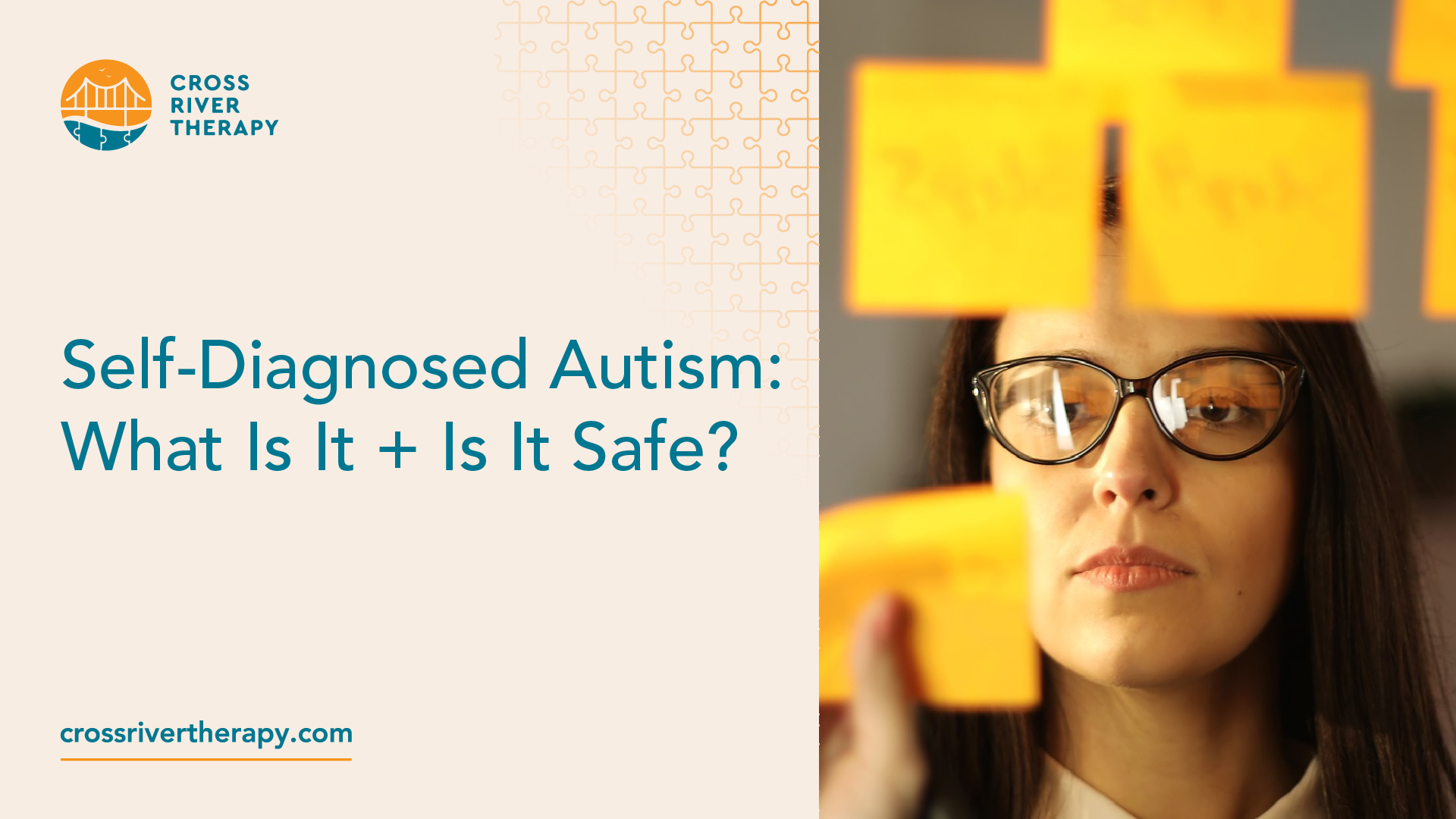Self-Diagnosed Autism: What Is It + Is It Safe?
Without a formal diagnosis, individuals may not receive the appropriate support and resources they need to manage their disorder.
What Is Self-Diagnosis Autism?
Self-diagnosis autism refers to individuals who have not received a formal diagnosis of ASD from a medical professional, but who believe that they have the condition based on their own research and self-assessment.

These individuals may use online resources or personal experiences to identify with the symptoms of autism, and may choose to self-identify as autistic without seeking a formal diagnosis.
In recent years, there has been a growing trend of self-diagnosed autism.
Autism Spectrum Disorder (ASD) is a neurodevelopmental disorder that affects communication, social interaction, and behavior. It is typically diagnosed in childhood, but some people may not receive a diagnosis until adulthood.
Is It Possible To Self Diagnose Autism?
While some people argue that self-diagnosis can be a helpful tool for those who may not have access to or cannot afford a formal diagnosis, it is important to note that self-diagnosing autism can also be problematic.
Without a formal diagnosis, individuals may not receive the appropriate support and resources needed to manage their symptoms and improve their quality of life.

Additionally, self-diagnosis can lead to misdiagnosis, as individuals may identify with symptoms that overlap with other conditions but do not actually have autism.
Ultimately, it is recommended that individuals seek professional evaluation from a qualified medical professional if they suspect they may have autism or any other neurodevelopmental disorder.
Why Do People Self-Diagnose Autism?
There are several reasons why people may choose to self-diagnose autism. One of the most common reasons is a lack of access to healthcare or financial resources to obtain a formal diagnosis.
In some cases, individuals may not have access to a healthcare provider who is knowledgeable about autism, or they may not be able to afford the cost of a diagnosis.
Another reason why people may self-diagnose autism is a desire for self-understanding and community.
Many individuals who identify with the symptoms of autism may feel isolated or misunderstood, and may turn to online communities or resources to find a sense of belonging. Self-diagnosis can provide a sense of validation and identity for these individuals.
Is Self-Diagnosis Valid?
The validity of self-diagnosed autism is a topic of debate within the autism community. Some individuals argue that self-diagnosis can be a helpful tool for individuals who may not have access to a formal diagnosis, or who may not feel comfortable seeking a diagnosis due to stigma or discrimination.
However, others argue that self-diagnosis can be harmful, as it may lead to misdiagnosis or a misunderstanding of the condition. Autism is a complex disorder that can present differently in each individual, and a formal diagnosis can provide a more accurate understanding of an individual's symptoms and needs.
The Importance of Seeking Professional Diagnosis
While self-diagnosis can be a helpful tool for some individuals, it is important to note that a professional diagnosis is the most accurate way to identify autism.

A formal diagnosis can provide access to specialized services and support, as well as a better understanding of an individual's needs and strengths.
If you believe that you or a loved one may have autism, it is important to seek a professional diagnosis from a qualified healthcare provider.
This can involve a comprehensive evaluation of an individual's symptoms, as well as a review of their medical and developmental history.
The Potential Risks of Self-Diagnosing Autism
While self-diagnosis can be a helpful tool for some individuals, there are potential risks involved. One of the biggest concerns is the risk of misdiagnosis or misunderstanding of the condition.
Autism is a complex disorder that can present differently in each individual. Without a formal evaluation from a qualified healthcare provider, it can be difficult to accurately identify whether an individual's symptoms are due to autism or another condition.
This can lead to misdiagnosis and inappropriate treatment, which can be harmful to an individual's health and wellbeing.
In addition, self-diagnosed individuals may not have access to accurate information about their condition. Autism is a complex disorder that requires specialized knowledge and expertise to understand fully.
Without access to professional resources, self-diagnosed individuals may rely on inaccurate or incomplete information about their condition, which can lead to misunderstanding and confusion.
Finally, self-diagnosis may also perpetuate harmful stereotypes and misinformation about autism.
Some individuals who self-diagnose may not fully understand the complexities of the condition and may inadvertently contribute to negative attitudes towards autism in society.
For these reasons, it is important for individuals who suspect they may have autism to seek a professional diagnosis from a qualified healthcare provider.
A formal diagnosis can provide access to specialized services and support, as well as accurate information about an individual's strengths and needs.
Conclusion
Self-diagnosed autism is a growing trend that has sparked debate within the autism community.
While self-diagnosis can be a helpful tool for some individuals, it is important to remember that a professional diagnosis is the most accurate way to identify autism.
If you believe that you or a loved one may have autism, it is important to seek a formal diagnosis from a qualified healthcare provider.



